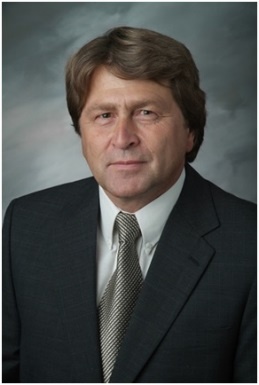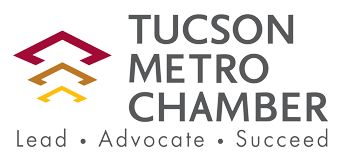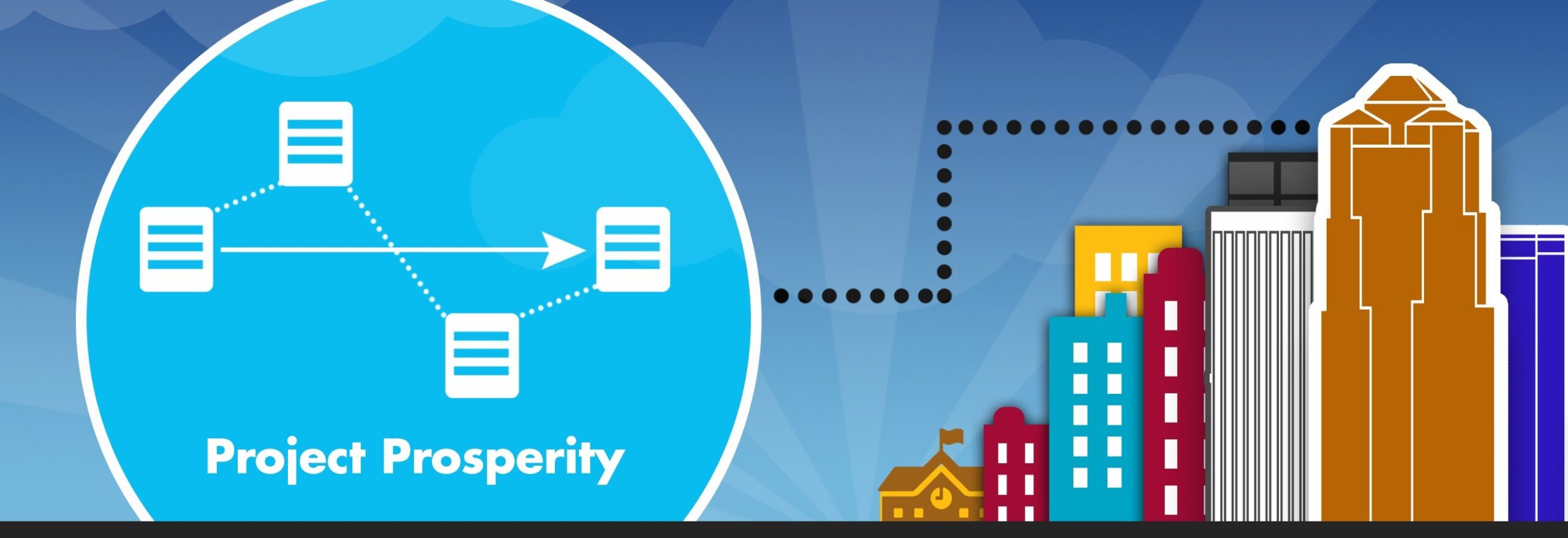In a 2014 Tucson Metro Chamber survey of local business executives called the Business Expansion and Retention (BEAR) Report, the Chamber learned that the interface between the City of Tucson and the private sector needed some refinement so it could operate more smoothly and help more job creators open their doors.
In 2015 the Chamber asked a group of local business executives to assess how the Chamber could promote a higher level of understanding and cooperation between business and the City of Tucson, specifically the Planning and Development Services Department. The Project Prosperity Task Force was born. In the following months the task force identified a number of opportunities for improvement. The next step for the group was to reach out to City of Tucson officials to introduce them to the idea of working together with the private sector on a specific set of objectives. Visits with all six City Council members, Mayor Rothschild and (at the time) new City Manager Mike Ortega went very well, and all accepted the idea of working together. The seven objectives identified by the Task Force are below.
Since reaching initial agreement to work together, City of Tucson officials and Project Prosperity Task Force members have held a number of meetings to achieve positive results. Cooperation has been extraordinarily high. Dialogues have been learning opportunities for all of the engaged parties.
The Tucson Metro Chamber thanks the Task Force members for their time, effort and expertise in achieving all seven objectives of the Project Prosperity Task Force.
Project Prosperity Task Force Members
| Mike Addis
Addisigns |
Robert Medler
Tucson Metro Chamber |
| Bill Assenmacher
CAID Industries |
Michael Ortega
City of Tucson City Manager |
| Andrea Ballard
Tucson Association of Realtors |
Barbi Reuter
Cushman & Wakefield | PICOR |
| Garry Brav
BFL Construction |
Jonathan Rothschild
City of Tucson Mayor |
| Jude Cook
Cook & Co. |
Amber Smith
Metropolitan Pima Alliance |
| Joe Davey
Tucson Federal Credit Union |
Richard Studwell
Durazo Construction |
| David Godlewski
SAHBA |
Michael Varney
Tucson Metro Chamber |
| Tom Warne
JL Investments |
Project Prosperity – Changing the Way Business Gets Done
1 − CHARTER CHANGE
The Project Prosperity Task Force began following the work of the City of Tucson Charter Change Committee in 2015. Its purpose was to promote changes in the city charter that would affect election and fiscal issues. Specifically, the task force advocated for primary elections and general elections to either be ward-only or at-large only and not a hybrid of the two. Since the task force commenced its work to advocate charter changes that support job growth, the Ninth Circuit Court of Appeals has handed down a decision agreeing with the City’s ward-only primary/at-large general election process. Had the decision gone the other way, it is likely that the City of Tucson election system would be modified so primary and general elections would use the same format.
Fiscal issues regarding elimination of the City’s sales tax cap and borrowing limitations remain under discussion.
2 − INFILL DISTRICTS AND OTHER INFILL INCENTIVES
Possibly the biggest development of the Project Prosperity Task Force is the promotion of infill incentives throughout the City including infill districts in each ward. These infill districts would be specific geographic areas that are in need of improvement which would be identified with the assistance of the Tucson City Council member in that ward. Actions the City has taken already to incentivize infill include:
- Approving expansion of the Planned Area Development tool for small infill projects
- Major Streets and Routes setback relief (previously a barrier to infill)
- Development of an overlay district for Grant Road, Oracle to 1st, which will serve as a prototype for other areas and corridors going forward.
Additionally, in December the Council discussed an Adaptive Reuse Program, modeled on the successful Phoenix program that has helped infill projects by providing ombudsman assistance, streamlining the review process and waiving review fees. While our progress to date has been significant, the Project Prosperity Task Force will continue to work in 2017 on making the concept of infill districts in each ward a reality as well as creating other incentives that facilitate residential and commercial development.
3 − BUSINESS LICENSES
Over the past several years the Chamber has heard that the process to obtain a business license with the City of Tucson was cumbersome and unpredictable. A Project Prosperity Task Force member explored the City’s process and found that recent improvements in the system made acquiring an online business license a simple and efficient process.
4 − PERMITTING AND INSPECTION PROCESS
Over the last several years, organizations representing Project Prosperity have asked for many changes within Planning and Development Services to increase process efficiency, improve customer service attitude and remove barriers to responsible development. In November 2015, Mayor Jonathan Rothschild and members of the Tucson City Council established the Planning and Development Services Department (PDSD) Advisory Committee and described its function to “review the internal processes of the Planning and Development Services Department as well as relevant criteria for the selection of the Director.” In January 2016, City Manager Mike Ortega undertook some reorganization of City departments, which included merging the Office of Integrated Planning (OIP) with PDSD. Nicole Ewing – Gavin, then director of OIP, was named interim director of PDSD, and Lynne Birkinbine, the administrator of OIP, became interim deputy director.
During this period, several departmental changes took place including Code Enforcement moving from PDSD to the Environmental Services Department. Additionally, budget cuts and retirement incentives led to a further reduction in PDSD staff from 87 to 57 positions. Following the reorganization of PDSD, the city manager empowered PDSD leadership to begin making improvements to the department based on feedback provided both internally and externally. Some of the changes most impactful to economic development that have been encouraged by groups within Project Prosperity include but are not exclusive to:
- Improving customer service and communication between the public and private sector through updates to organizational charts, contact information, cross-training and remodeling the first floor customer service and permit office.
- Piloting an upgraded PRO website: tucsonaz.gov/prodev/pdsd/
- Establishing PDSDwebsite@tucsonaz.gov to allow for reporting of problems with the information provided on the PDSD website
- Upgrading Permits Plus to Accela Automation (in progress)
- Piloting Bluebeam electronic review software
- Increasing the ability for electronic and email submittals, online credit card payments and piloting electronic submittals for solar projects
- Expanding second- and third-party reviews as applicable in an effort to create more efficient service
- Improving internal communications and processes between City departments to address/reduce conflicts in permit review process
- Expanding use of Planned Area Development (PAD) adopted by Mayor and Council
- Adopting Major Streets & Routes Setback Relief measures by Mayor and Council
- Developing Grant Road Land Use Planning Tools, including a Remnant Parcel Establishing a Disposition Strategy and Urban Overlay District (in progress)
- Including PDSD staff and the private sector in the selection process for a new PDSD director
- Forwarding the Take Time Extension Amendment to Mayor and Council (in progress)
- Working on the Historic Preservation Zone (HPZ) Window Amendment (in progress)
- Continuing to look for opportunities to use the International Existing Building Code (IEBC) for revitalization of existing buildings (in progress)
5 − SIGN CODE
The City of Tucson sign code and its governance and application have been subjects of dispute and conflict for years. Proposed changes to the code go through the Citizens Sign Code Committee (CSCC), which provides input and recommendation to the mayor and City Council. The CSCC has been choosing its agenda with little or no guidance from staff or Mayor and Council. It has proved to be a time-consuming process with little accomplished. Businesses want a simple sign code that is fairly and uniformly applied.
City of Tucson officials are revising the current sign code and have named a new sign code administrator. The Task Force has succeeded in seating a new representative from the private sector to the Citizens Sign Code Committee. In addition, the role of the CSCC is changing, so it will serve more as an advisory group rather than a policy-making or interpreting body.
The sign code will be moved into the Unified Development Code (UDC) and the sub-committee is reworking definitions and reviewing the draft in an effort to simplify and have the code comply with the U.S. Supreme Court’s decision regarding Reed vs. Gilbert, a landmark legal case involving sign regulation. There are several changes in the draft regarding issues that staff has identified as ongoing issues to look at changing.
6 − OPPORTUNITY QUANTIFICATION
It is important that the impact of City Council decisions on job-creating opportunities is measured and quantifiable. A simple form has been created and accepted that will be included with development plans that identifies and describes the project’s impact on job creation and sales tax revenue. The goal is to make it crystal clear that when a job-creating project is delayed or rejected that there is a cost in terms of jobs and sales tax revenue for the City of Tucson.
7 − BUSINESS 101 WORKSHOP
In order to ensure that City of Tucson policy-makers and staff are aware of the roles played by job creators and the challenges they face, the Project Prosperity Task Force conducted a two-hour workshop in March. Speakers included Harvard University and University of Arizona economists, lenders and local developers.
 Bill Assenmacher, CEO,
Bill Assenmacher, CEO,
Chair, Project Prosperity Task Force,
Tucson Metro Chamber

Special thanks to Tucson Metro Chamber for providing this content, originally published in https://tucsonchamber.org/ publication, The Chamber Edge, Winter 2017.





